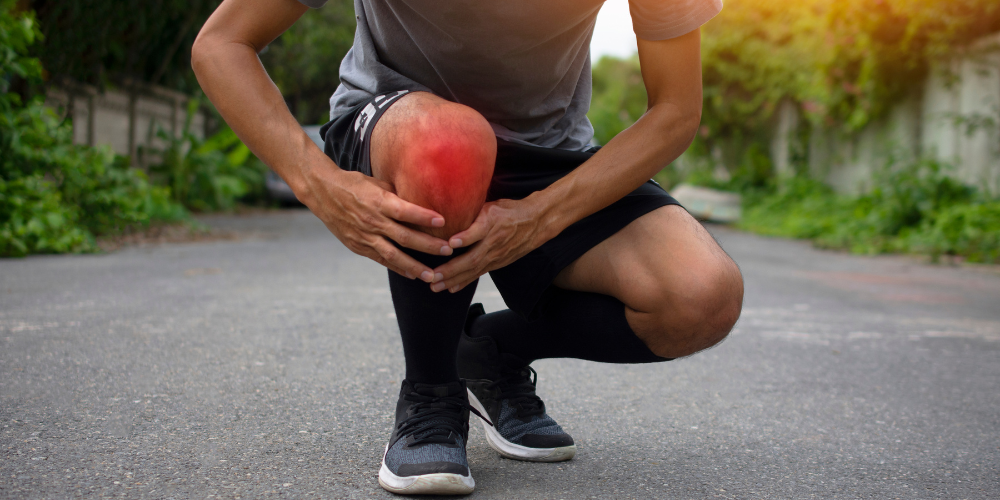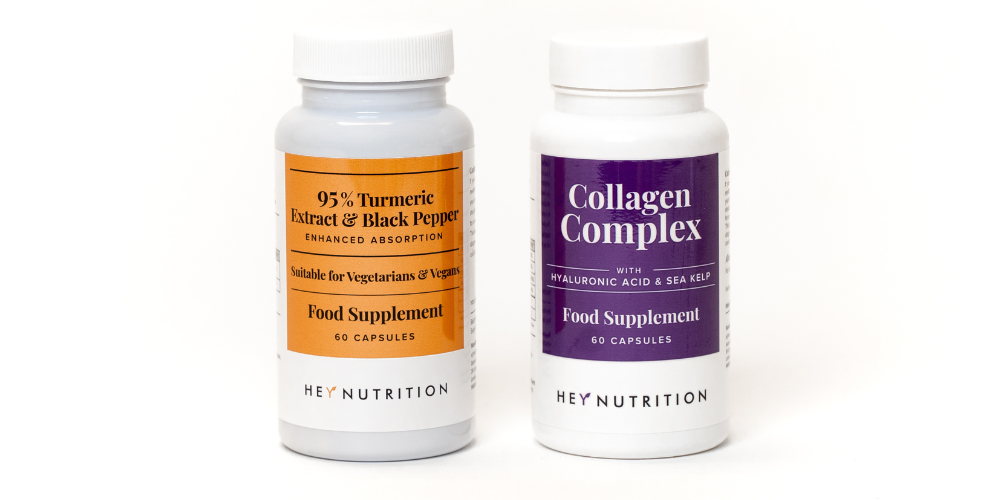Recent Comments
No comments to show.

So you’ve started your health journey and are taking up running, but are worried about the current state of your body or what running might do to it? We understand.
Running is a great healthy hobby to get you moving that requires very minimal equipment to get started (we highly suggest a quality pair of running shoes). However, there are myths about running that may deter you from trying it out.
We’re here to help you understand what running can do for you and to debunk those myths:
Running can be categorised as a high-impact activity, meaning your body may experience some wear and tear. This is especially true if you run with an incorrect form. Therefore, proper form is necessary. To avoid injury, land gently, avoiding pounding your foot as you land.

The answer: Mostly myth. Let us explain…
If you run with improper form, the cartilage around your knee can’t absorb the shock, which can lead to a decently painful blow to your knee since it isn’t cushioned. Additionally, if you don’t pace yourself and overdo it, that can also cause discomfort since you’re putting more stress on your body than it can handle.
But that doesn’t mean running altogether is bad for your knees. If done properly, running can actually be extremely beneficial for your knee and joint health by helping you strengthen your knees leading to reduced discomfort.[1]
As with many exercises though, consistency is key. If you have ever taken a break from exercising, but then decided to jump back in, chances are you experienced some pain and discomfort. The same goes for “runner’s knee.” Your body (or in this case, your knee) needs to readjust after some time off. Instead of taking time off, go forth running, but with less impact or intensity.
So in summary: Running is not bad for your knees. Running with bad form is bad for your knees.
If you are experiencing severe pain or discomfort, talk to your doctor before starting or continuing activities.

Just because you deal with knee pain doesn’t mean you can’t still take up running.
One study included 82 middle-aged volunteers who had some sort of knee discomfort. After running a marathon, those volunteers were then evaluated for short- and long-term effects. Researchers found that there was a reduction in tibia and femoral bone damage, but also found some deterioration in the patellar cartilage.[2]
So what does that mean for you? Don’t be afraid to start running for fear of causing knee pain. Rather, listen to your body and respect what it’s telling you—if you’re experiencing pain, take time to figure out what may be causing it. If need be, discuss it with your doctor.
There’s no set amount of miles you should be running. And there’s no need to set one—simply getting out and moving for 10 or minutes is beneficial for your health.
If you’re wanting to set personal goals, there are ways to help you improve or keep track. Try training apps or keep a log to track your progress. Keep a steady pace as pushing yourself beyond what you may be ready for can potentially hurt you rather than help you.
Remember—Consistency is key. Try to keep to a routine.
There are supplements out there that can help you and your joints stay healthy and mobile. Here are a few worth checking out:
Turmeric supplements are simply spice turmeric in capsule form. Turmeric supplements can provide a more concentrated dose of curcumin and other curcuminoids.
Turmeric Curcumin can help alleviate symptoms of sore joints and muscle soreness after exercise.[3,4] Due to its soothing properties, curcumin can help reduce joint tenderness, support joint range of motion and mobility, and reduce joint discomfort. The compounds (curcuminoids) found in turmeric, according to experts, have been shown to support muscle strength during periods of physical inactivity. Experts contend that turmeric might be helpful in muscle recovery for this reason.[5]
Our Turmeric Extract Complex contains potent doses of turmeric curcumin extract, black pepper extract, vitamin D, and vitamin C. Our product helps to improve muscle function and health and boosts collagen production, which helps to maintain healthy bones and cartilage. Click here to check it out.

Collagen is the most abundant protein in the human body. It maintains strength and flexibility throughout the body and is considered the glue that holds your body together.[6] When collagen in the body decreases, you could potentially be more prone to developing degenerative joint disorders, such as osteoarthritis.
The amino acids in collagen are what help with athletic recovery and overall healthy joints. Glycine aids in lubricating joints, which increases mobility. Proline and lysine aid in strengthening ligaments and tendons.[7,8]
Our Collagen Complex with Hyaluronic Acid and Sea Kelp contains a superblend of ingredients that nourish your body from the inside. Our collagen formula effectively helps to promote cartilage, bone, and muscle health, and so much more. Click here to check it out.
Vitamin D3 and Vitamin K2 are the perfect pair.
Vitamin D3 supports the development and maintenance of healthy bones and muscles by facilitating the absorption and utilisation of calcium and phosphorus.[9]
Vitamin K2 is an essential vitamin for the maintenance of healthy bones by improving bone density. This helps to reduce the risk of fractures and bone deterioration. Vitamin K2 shuttles calcium to the bones, and also promotes normal blood clotting in the body.[10]
Our Vitamin D3 & K2 MK-7 is a powerful supplement that combines two essential nutrients with medium chain triglycerides (MCT) to amplify absorbency. Our formula helps to build and sustain healthy bones, which can prevent bone weakness, skeletal deformities, and more. Click here to check it out.
We recommend consulting with your physician before starting any new supplements.
Congratulations on taking the steps to work on your ongoing health journey! If you’re interested in more holistic options to further help that journey, click here to take a look at what all HeyNutrition has to offer!
Resources: